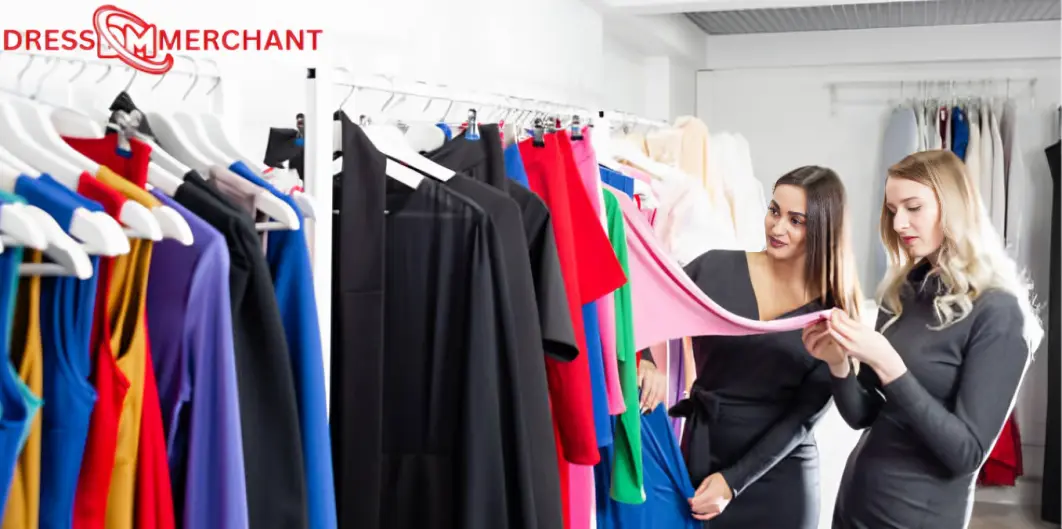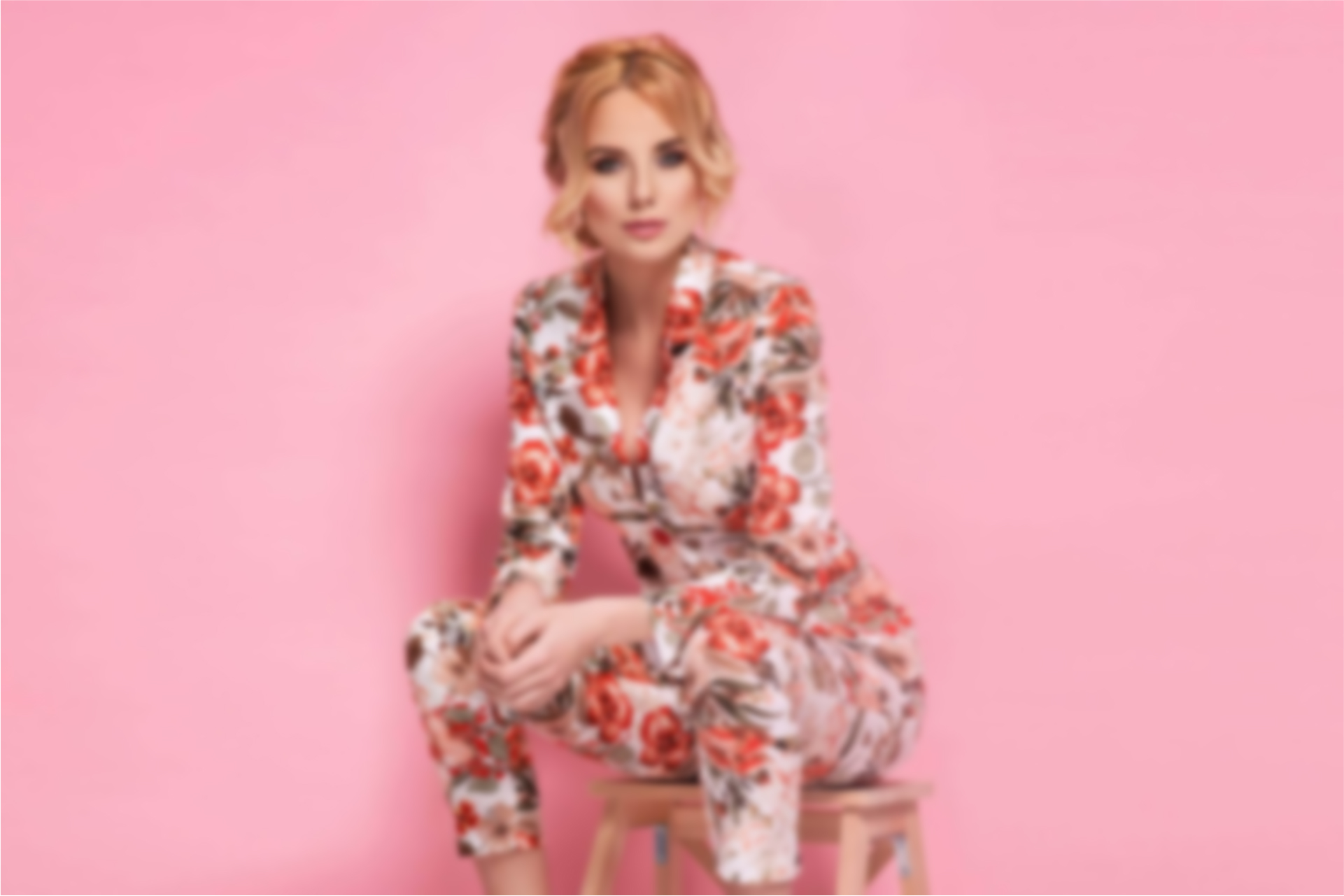Trusted Garments Buying Agent In Bangladesh, Dress Merchant is your reliable sourcing partner for apparel manufacturing and export. We connect global brands with top-rated garment factories across Bangladesh, ensuring high-quality production, timely delivery, and cost-effective solutions. With expert quality control and ethical sourcing practices, Dress Merchant stands as a dependable name in the global textile supply chain. Partner with us for seamless garment sourcing.
Thank you for reading this post, don't forget to subscribe!
1. Introduction to Garments Buying Agents in Bangladesh
1.1 Overview of the Garment Industry in Bangladesh
Bangladesh stands tall as the second-largest apparel exporter globally, with its garment sector being the backbone of the nation’s economy. This thriving industry has positioned the country as a preferred hub for global apparel sourcing, supplying fashion items to top-tier brands across Europe, North America, and beyond.
The strength of Bangladesh’s garment industry lies in its skilled labor force, competitive manufacturing costs, and well-established infrastructure. With thousands of factories certified by global standards, the country ensures that international buyers receive high-quality products at competitive prices. Over the years, Bangladesh has built a reputation for delivering mass production of ready-made garments while adhering to buyer requirements and tight deadlines.
1.2 The Function of a Garments Buying Agent
A garments buying agent plays a critical role in facilitating smooth transactions between international fashion buyers and local garment manufacturers. Acting as a strategic intermediary, these agents manage the entire sourcing process from start to finish.
Their core responsibilities include identifying and auditing reliable garment factories, negotiating the best prices on behalf of buyers, managing the entire production cycle, and ensuring quality standards through inspections and testing. Additionally, they coordinate with logistics providers to arrange efficient shipping, minimizing transit delays and additional costs. A good buying agent operates as an extension of the buyer’s team, ensuring that every aspect of the supply chain aligns with the buyer’s expectations and brand ethos.
1.3 Importance of a Trusted Buying Agent
The success of international apparel sourcing greatly depends on having a trustworthy garments buying agent. Such an agent ensures transparent communication, ethical manufacturing practices, and compliance with international quality and safety regulations.
Buyers benefit from the agent’s local market expertise, industry connections, and ability to mitigate risks at every step. A reputable agent not only saves time and money but also builds long-term value by aligning the sourcing strategy with the buyer’s business objectives. In today’s highly competitive fashion industry, where brand reputation and timely delivery are paramount, the importance of a reliable buying agent cannot be overstated.
1.4 Challenges Without a Reliable Agent
Operating without a dependable buying agent can expose international buyers to numerous operational and strategic risks. These may include poor-quality products, incorrect shipments, failure to meet deadlines, communication breakdowns, and non-compliance with ethical standards.
Additionally, navigating the complex and dynamic textile market in Bangladesh without local representation can lead to financial losses and reputational damage. Therefore, choosing the right buying agent is not merely a convenience—it’s a necessity for any fashion brand aiming to succeed in Bangladesh’s garments export industry.
2. Core Responsibilities of a Trusted Buying Agent
2.1 Vendor and Factory Sourcing
One of the primary responsibilities of a trusted buying agent is vendor and factory sourcing. This process involves identifying, evaluating, and partnering with reliable garment manufacturers that meet the buyer’s specific requirements. A professional agent maintains a robust network of vetted suppliers who are not only capable of producing high-quality goods but also adhere to ethical sourcing and sustainable manufacturing standards.
The agent ensures that these factories comply with local labor laws, environmental guidelines, and international compliance certifications such as WRAP, BSCI, or SEDEX. This due diligence helps the buyer mitigate risk and maintain their brand reputation in global markets.
2.2 Price Negotiation and Cost Optimization
Another core function of a buying agent is price negotiation and cost optimization. With in-depth knowledge of local market dynamics and production costs, the agent negotiates competitive prices on behalf of the buyer. This negotiation process involves analyzing raw material costs, labor rates, production lead times, and logistics expenses.
By leveraging long-standing relationships with manufacturers and using market benchmarks, a trusted agent ensures the best possible price-to-quality ratio. This cost efficiency is critical for brands looking to maintain healthy profit margins in today’s competitive landscape. Moreover, agents often offer suggestions for material substitution or design adjustments that can reduce costs without compromising quality.
2.3 Quality Control and Assurance
Maintaining high standards in quality control and assurance is a non-negotiable aspect of a buying agent’s responsibilities. From the initial fabric inspection to final packing, every stage of production is closely monitored through a structured quality assurance protocol.
The agent arranges third-party inspections or deploys in-house quality inspectors to conduct various quality checks such as lab dips, color fastness, stitching strength, and overall workmanship. These quality measures ensure that each product meets the buyer’s specifications and international standards before shipment.
By enforcing stringent quality controls, a trusted agent reduces the chances of product rejections, returns, and delays—thereby ensuring customer satisfaction and brand integrity.
2.4 Production Monitoring and Follow-Up
Effective production monitoring and follow-up are vital to ensure that the production schedule is on track. The agent maintains continuous communication with the factory floor, updating the buyer with weekly production reports, sample approvals, and any critical path deviations.
If any production issues arise—such as material shortages, technical faults, or labor unrest—the agent intervenes immediately to implement corrective actions. This proactive approach minimizes disruptions and ensures on-time delivery, a key performance metric in the fast-paced apparel industry.
Timely follow-ups and strong coordination also help in meeting tight deadlines, especially during seasonal or promotional campaigns. A well-organized agent ultimately acts as the buyer’s eyes and ears on the ground, ensuring transparency and accountability at every step.
3. Key Qualities of a Trusted Garments Buying Agent
A garments buying agent plays a crucial role in bridging the gap between international buyers and local manufacturers. They act not only as intermediaries but also as strategic partners who ensure product quality, timely delivery, and ethical sourcing. Choosing the right buying agent can make a significant difference in the success of a clothing business. Below are the key qualities that define a trusted garments buying agent.
3.1 Industry Expertise and Technical Knowledge
A dependable agent must have deep industry knowledge. This includes an in-depth understanding of fabrics, trims, garment constructions, and production techniques. With years of experience and exposure to different apparel categories, they can easily guide buyers in selecting the right materials based on market trends and seasonal demands.
Furthermore, such agents stay updated with fashion innovations, color forecasts, and fabric advancements. Their technical know-how helps in creating cost-effective and high-quality products. They assist manufacturers in interpreting buyer requirements accurately, reducing errors in sampling and bulk production.
Their expertise also ensures they can advise buyers on design feasibility, suggest suitable fabric blends, and even optimize manufacturing processes. A reliable buying agent becomes a technical consultant, which adds immense value to the sourcing process.
3.2 Strong Communication and Negotiation Skills
Effective communication is the backbone of any successful sourcing relationship. A trusted buying agent serves as a bridge between international buyers and local factories. They must clearly convey product requirements, timelines, and expectations to avoid any form of misunderstanding.
Additionally, a skilled agent is a proficient negotiator. They negotiate prices, lead times, and payment terms to benefit both parties while maintaining product quality. These negotiation abilities contribute to better margins for the buyer and sustainable business for the manufacturer.
Their ability to provide timely updates and clear documentation ensures transparency and trust throughout the supply chain. Whether it’s following up on sampling or addressing buyer feedback, consistent communication is vital.
3.3 Ethical Business Practices
Ethical standards are non-negotiable in today’s apparel industry. A trustworthy agent ensures that all sourcing activities comply with international labor laws, safety protocols, and environmental standards.
They collaborate with compliant factories that follow fair wage policies and safe working conditions. Ethical agents also promote transparency by facilitating audits and maintaining traceable records of suppliers and raw materials.
By advocating responsible sourcing, they help brands uphold their values, reduce reputational risks, and build stronger connections with socially-conscious consumers. This commitment enhances the brand’s image and ensures long-term growth.
3.4 Adaptability and Problem-Solving Ability
In the fast-paced garment manufacturing industry, challenges are inevitable. A trusted buying agent demonstrates the ability to swiftly adapt to changing conditions and overcome unexpected obstacles.
Whether it’s a raw material shortage, sudden price fluctuation, production delay, or a last-minute change from the buyer, they respond quickly with practical solutions. Their problem-solving skills come from experience, networks, and proactive thinking.
These agents often maintain a pool of backup suppliers, which allows them to shift production or sourcing without disrupting timelines. Their flexibility ensures that even under pressure, the buyer’s requirements are met with minimal delay and optimal quality.
In short, adaptability, resilience, and a solution-oriented mindset make an agent an invaluable asset in the garments sourcing process.
4. Services Offered by Garments Buying Agents
Garments buying agents serve as a bridge between international buyers and local manufacturers. Their diverse range of services ensures smooth operations, quality assurance, and on-time delivery in the garment sourcing process. By offering end-to-end solutions, these professionals play a crucial role in the global apparel supply chain.
4.1 Product Development Support
One of the most critical functions of garments buying agents is facilitating product development. From initial concept design to final sample approvals, agents help transform creative ideas into production-ready garments. They collaborate with buyers to understand the product’s vision, target audience, and price point.
This service includes preparing and refining tech packs, advising on fabric selection, and coordinating sample development with manufacturers. The agent ensures all design details are communicated effectively, preventing errors and misunderstandings during production. Their deep understanding of trends, fabric behavior, and production techniques helps to enhance product aesthetics and functionality.
Moreover, agents often recommend innovations in fabrics or styling to improve competitiveness, offering true value-added services in the garment development process.
4.2 Supplier Evaluation and Auditing
Garments buying agents conduct detailed supplier evaluations to ensure that manufacturers meet the buyer’s expectations. This includes assessing a factory’s production capacity, technical capabilities, labor practices, and compliance with ethical standards.
Agents perform social compliance audits, checking certifications such as WRAP, BSCI, SEDEX, and others. These audits are vital for ensuring that the production facilities follow international labor laws, environmental regulations, and workplace safety standards.
Through supplier assessments, agents help minimize risks associated with sourcing, ensuring a trustworthy and ethical supply chain. Their ability to select reliable and efficient suppliers significantly impacts the overall success of the buying process.
4.3 Order Management and Documentation
Managing orders from start to finish is another essential responsibility of buying agents. They oversee the entire order lifecycle, starting from placing purchase orders to supervising production timelines, quality control, and final inspections.
Agents also handle all shipping and customs-related documents, such as invoices, packing lists, and bills of lading. They ensure all paperwork is accurate and complies with both local and international trade regulations. Their meticulous approach to documentation reduces errors, avoids shipment delays, and enhances buyer confidence.
Effective order management enables better coordination between all stakeholders, improving lead times and overall efficiency in garment sourcing.
4.4 Post-Shipment Support
Leading garments buying agents don’t stop at shipment. They offer post-shipment services that include inventory tracking, handling quality claims, managing reorders, and facilitating product returns if necessary.
In case of any issues, agents act swiftly to resolve disputes and coordinate with suppliers to rectify problems. This added layer of support strengthens the relationship between buyers and agents while ensuring continuous improvement in service quality.
By offering after-sales support, agents contribute to long-term buyer satisfaction, making them invaluable partners in the competitive world of garment exports.
5. Benefits of Working with a Trusted Buying Agent
Partnering with a trusted buying agent can significantly enhance the sourcing, manufacturing, and delivery processes for any apparel brand. These professionals act as a bridge between international buyers and local manufacturers, ensuring that every stage of the supply chain is managed efficiently, cost-effectively, and with a high level of quality assurance. Let’s explore the key benefits in detail.
5.1 Cost Efficiency
One of the biggest advantages of working with a trusted buying agent is achieving cost efficiency. Buying agents help brands streamline the sourcing process by connecting them directly with vetted and reliable suppliers, eliminating the need for multiple intermediaries.
By consolidating production and negotiation tasks, agents reduce the risk of overpaying or dealing with hidden costs. They are skilled negotiators who can secure better rates based on volume and long-term relationships with factories. Their local market expertise also helps in identifying the most economical solutions without compromising quality.
This optimization results in significant savings on operational costs, making production more profitable and manageable for global brands.
5.2 Time Savings
In a fast-paced fashion industry, time savings are crucial. Trusted buying agents manage all aspects of the sourcing and manufacturing process locally, which includes supplier coordination, sample development, production monitoring, and logistics arrangements.
Buyers are spared from time-consuming tasks like factory visits, quality checks, and shipment follow-ups. This allows brand managers and designers to concentrate on core business activities such as marketing, product development, and customer engagement.
By reducing turnaround times and ensuring timely deliveries, agents play a vital role in accelerating the product-to-market timeline, giving brands a competitive edge in the marketplace.
5.3 Quality Consistency
Maintaining quality consistency across all orders is a top priority for any fashion brand. Trusted buying agents implement stringent quality control protocols at every production stage. They perform regular factory audits, inspect raw materials, and monitor each step of production to ensure that every product meets predefined brand standards.
Agents act as the eyes and ears of the buyer on the ground, proactively identifying and addressing any issues before they become major setbacks. Their dedication to maintaining uniform quality helps build long-term customer trust and brand reputation.
5.4 Risk Mitigation
Production and shipping processes always carry a degree of risk. Delays, defects, or miscommunication can lead to lost revenue and damaged brand image. This is where a reliable buying agent steps in to minimize such risks.
They provide real-time updates, transparent communication, and contingency plans to handle unexpected challenges like labor shortages, material delays, or shipment disruptions. Their experience in handling crisis situations ensures risk mitigation and peace of mind for the buyer.
In essence, trusted agents serve as the brand’s local safeguard, ensuring smooth operations and successful outcomes from start to finish.
6. How to Choose the Right Garments Buying Agent
Choosing the right garments buying agent is crucial for ensuring smooth sourcing, maintaining product quality, and achieving cost-effective production. A reliable agent acts as a bridge between buyers and manufacturers, ensuring that the supply chain flows efficiently. Below are the key considerations to help you make an informed decision when selecting a garments buying agent.
6.1 Check Credentials and References
Before partnering with a garments buying agent, it’s important to verify their experience, background, and credibility. Start by evaluating how long they’ve been in the garments sourcing industry. An established agent with a proven track record is more likely to have strong vendor relationships and extensive market knowledge.
Ask for a list of past and current clients. Reputable agents won’t hesitate to share references or testimonials that vouch for their performance. Also, check if they hold any industry certifications or affiliations, such as ISO or compliance with buyer codes of conduct. These credentials reflect a commitment to quality standards and ethical practices.
Conduct background checks where possible, and don’t hesitate to ask about previous sourcing projects. A trustworthy agent will offer transparency about their successes and challenges, demonstrating accountability.
6.2 Assess Transparency and Communication
Clear and consistent communication is the foundation of a successful partnership. A professional buying agent should be proactive in updating you about production progress, shipment timelines, and any challenges that may arise. They should also be open to sharing factory profiles, audit reports, and inspection results.
Look for agents who maintain transparency in their dealings, including pricing breakdowns and lead times. Honest agents provide realistic timelines and avoid overpromising. Their ability to share details about manufacturing units, labor practices, and material sourcing is vital for maintaining your brand’s compliance standards.
Regular video calls, email updates, and instant messaging support can enhance the workflow and build mutual trust.
6.3 Evaluate Quality Control Mechanisms
Product quality is non-negotiable in the fashion and apparel industry. A capable buying agent should have robust quality control systems in place. Inquire whether they maintain in-house quality assurance teams or collaborate with independent third-party inspection agencies.
Well-documented QC processes—such as inline and final inspections—help catch issues before products are shipped. Ask for sample inspection reports or real-case quality resolution strategies they’ve implemented. Strong quality protocols ensure that your brand maintains its reputation in the market.
6.4 Understand Their Network and Reach
The strength of a buying agent’s supplier network can significantly influence your sourcing options. Agents with a wide network across different regions and product categories can offer better pricing, quality, and production flexibility.
Such agents are better equipped to handle large volumes, seasonal demands, or specialized garment types like denim, knitwear, or technical apparel. Their ability to quickly switch suppliers in case of delays or quality issues provides much-needed agility in a dynamic market.
When choosing a buying agent, prioritize those with a strong market presence, diversified factory partnerships, and a deep understanding of global sourcing trends.
7. Garments Categories Handled by Buying Agents
7.1 Knitwear and Casualwear
Buying agents in Bangladesh play a pivotal role in sourcing a wide range of knitwear and casualwear garments. Popular items include t-shirts, polo shirts, sweatshirts, tank tops, joggers, and leggings. These products are predominantly sourced from specialized knit garment factories located in Dhaka, Narayanganj, and Gazipur — three of the country’s leading industrial hubs.
These factories are equipped with circular knitting machines, modern cutting facilities, and advanced screen-printing or embroidery units to handle bulk orders with efficiency and precision. Moreover, agents ensure that factories comply with international standards such as BSCI, WRAP, and SEDEX for ethical manufacturing. Through close collaboration, agents monitor quality, lead time, and fabric composition, ensuring that buyers receive durable, trendy, and cost-effective casualwear collections.
7.2 Woven Wear and Formal Attire
For woven wear and formal clothing, buying agents partner with factories known for their strong stitching techniques and finishing details. This category includes button-down shirts, formal trousers, business jackets, tailored blazers, and structured skirts. The demand for woven wear is high among brands targeting the corporate, office, and semi-formal retail markets.
Factories involved in producing these items are equipped with automatic pattern makers, CAD/CAM systems, and experienced tailors to ensure precision in cuts and fits. Buying agents oversee the quality control processes during and after production, maintaining consistency in measurements, stitch density, and finishing. Additionally, many of these factories also use imported interfacing, linings, and fusing materials to elevate the product’s quality, adding more value to the finished formal wear.
7.3 Denim and Bottoms
Bangladesh has earned global recognition for its denim manufacturing capabilities, and buying agents make the most of this advantage. From slim-fit jeans and denim jackets to high-waist shorts, skirts, and overalls, agents collaborate with top-rated denim factories that offer cutting-edge dyeing and washing facilities.
These manufacturers apply advanced techniques such as enzyme washing, laser fading, sandblasting, and ozone washing to meet fashion-forward global trends. Agents work closely with these units to ensure that garments meet international safety and sustainability standards, including the use of eco-friendly washing processes and water recycling systems. Their thorough inspection routines guarantee that each denim piece meets specifications related to colorfastness, shrinkage control, and wear-resistance.
7.4 Kidswear and Infant Clothing
Kidswear and infant clothing require special care, and buying agents ensure that all sourced garments meet stringent international regulations for children’s apparel. These include chemical safety standards, choking hazard controls, and enhanced comfort. The product range includes baby bodysuits, rompers, leggings, dresses, shorts, and t-shirts for children of all ages.
Agents work only with certified childwear manufacturers who use non-toxic dyes, hypoallergenic fabrics, and soft seams to ensure both safety and comfort. Regular lab tests are conducted to detect harmful substances, including lead, phthalates, and formaldehyde. Additionally, child-friendly design elements such as flatlock seams, covered elastics, and soft labels are prioritized. Buying agents play an instrumental role in communicating the brand’s safety and quality requirements to the factories while managing compliance, inspection, and delivery timelines.
8. Trends and Innovations in Garment Buying
The garment buying industry is rapidly evolving, fueled by technology, sustainability, and the demand for greater supply chain transparency. As global apparel markets shift and consumer preferences evolve, buying houses are adopting innovative methods and digital tools to stay competitive. Below are some key trends and innovations shaping the future of garment sourcing and procurement.
8.1 Sustainable and Eco-Friendly Sourcing
Sustainability is no longer a trend—it’s a necessity in the modern fashion industry. Garment buying houses are increasingly prioritizing eco-friendly sourcing strategies to align with global environmental standards and consumer expectations.
This includes the use of organic fabrics, recycled materials, and low-impact dyes. Buyers are also pushing for water-saving production processes and reduced carbon footprints throughout the supply chain. Moreover, agents now partner with factories that are certified by organizations like GOTS (Global Organic Textile Standard) and OEKO-TEX to ensure compliance with ethical and environmental norms.
These sustainable practices not only help protect the environment but also enhance the brand value of buyers by appealing to eco-conscious consumers.
8.2 Digital Sampling and 3D Design Integration
Digital transformation has revolutionized the product development phase in garment buying. The integration of digital sampling and 3D design tools allows agents and buyers to visualize the final product without having to produce physical samples.
This innovation significantly reduces lead times, minimizes waste, and lowers sampling costs. Designers can make real-time changes, and stakeholders can approve prototypes virtually, eliminating the need for multiple physical iterations.
Furthermore, this technology improves collaboration across global teams and accelerates the decision-making process, thereby creating a more agile and efficient garment sourcing model.
8.3 AI-Based Quality Inspections
Artificial Intelligence (AI) is making waves in garment manufacturing and inspection processes. Some forward-looking buying houses are incorporating AI-powered quality control systems that automatically detect defects during production.
These systems use computer vision to analyze stitching, fabric consistency, and garment measurements, providing real-time feedback to factory workers. As a result, it significantly improves production accuracy and consistency, reducing the number of defective items shipped.
AI-driven inspections also help in generating data analytics that can forecast quality trends, allowing agents to preemptively solve issues before they escalate.
8.4 Blockchain for Supply Chain Transparency
Blockchain technology is another powerful tool gaining traction in garment buying. It enables end-to-end supply chain transparency, allowing both buyers and consumers to trace the journey of a product from raw material to finished garment.
By implementing blockchain, agents can provide verifiable information regarding ethical sourcing, fair labor practices, and compliance with safety standards. This builds trust and accountability in the supply chain, which is particularly important for brands with a strong emphasis on corporate social responsibility.
Moreover, blockchain platforms help reduce fraud, ensure data integrity, and support real-time documentation and certification processes, making the entire supply chain more secure and efficient.
9. Legal and Compliance Aspects
9.1 International Trade Regulations
Understanding and adhering to international trade regulations is a fundamental responsibility for agents working in global sourcing and garment manufacturing. These regulations encompass a wide array of legal frameworks, including trade agreements, tariffs, customs duties, and import/export restrictions specific to the buyer’s country. Agents must stay updated on these rules to avoid delays or legal penalties that could arise from non-compliance.
Trade agreements such as Free Trade Agreements (FTAs) or regional trade pacts often offer preferential tariffs or simplified customs procedures, which can significantly impact the cost and timeline of shipments. Agents must be proficient in navigating these agreements to leverage any applicable benefits for their buyers.
Moreover, understanding customs documentation and procedures is critical. Proper classification of goods, accurate declaration of value, and compliance with product-specific regulations (such as safety standards or restricted substances) ensure smooth customs clearance. Failure to comply can result in goods being held, fines, or even seizure, disrupting supply chains and damaging business relationships.
9.2 Factory Certifications and Social Compliance
Ensuring that partner factories comply with social and environmental standards is a major component of legal and ethical sourcing. Agents are responsible for verifying that factories hold valid certifications like BSCI (Business Social Compliance Initiative), WRAP (Worldwide Responsible Accredited Production), SEDEX (Supplier Ethical Data Exchange), and OEKO-TEX, which demonstrate adherence to responsible labor practices, worker safety, and environmentally sustainable processes.
These certifications are not just formalities but essential indicators of factory credibility. They assure buyers that their suppliers maintain fair wages, prohibit child labor, enforce workplace safety, and manage environmental impact responsibly.
Agents also conduct regular audits and inspections to maintain ongoing compliance. By doing so, they protect the buyer’s brand reputation and reduce the risk of legal repercussions related to labor violations or environmental harm.
9.3 Contractual Obligations and Liabilities
A well-drafted contract is the cornerstone of a successful sourcing partnership. Contracts between agents, buyers, and factories must explicitly outline quality standards, delivery schedules, payment terms, and liability clauses to clearly define each party’s responsibilities.
Detailing quality control measures ensures that the final products meet buyer specifications and industry standards. Delivery timelines should be realistic and include penalties for delays to safeguard project schedules.
Payment terms should clarify methods, deadlines, and conditions for advance or final payments, preventing disputes and ensuring cash flow stability. Liability clauses must define the scope of responsibility for defects, damages, or breaches of contract, protecting both buyers and suppliers from unexpected losses.
Clear contracts reduce ambiguity, build trust, and provide legal recourse in case of disagreements, thus securing the interests of all involved parties.
9.4 Intellectual Property and Confidentiality
Protecting intellectual property (IP) is a critical aspect in the garment industry where proprietary designs, technical packs, and trade secrets are valuable assets. Agents play a key role in safeguarding these assets through robust non-disclosure agreements (NDAs) and secure communication protocols.
NDAs legally bind factories and other involved parties to confidentiality, preventing unauthorized sharing or replication of designs and product specifications. Secure communication channels, such as encrypted emails or dedicated platforms, further minimize the risk of data leaks.
Agents must also educate factories about respecting IP rights and monitor for any potential infringements. This proactive approach helps buyers maintain competitive advantages and avoid costly legal disputes related to IP theft or breaches.
By combining contractual protection with vigilant compliance, agents ensure the confidentiality and integrity of all proprietary information throughout the supply chain.
10. Future Outlook for Garments Buying Agents in Bangladesh
10.1 Rising Demand from Emerging Markets
The global garments industry is witnessing a significant shift as emerging markets in Africa, Latin America, and Southeast Asia become new hubs of economic growth and consumer demand. These regions offer immense potential due to expanding middle classes, rising disposable incomes, and increasing urbanization. For garments buying agents in Bangladesh, this trend translates into promising opportunities to diversify their client base and tap into previously underexplored markets.
Agents who proactively establish connections with manufacturers and retailers in these regions will gain a competitive advantage. They can facilitate access to Bangladesh’s robust garment manufacturing ecosystem, known for its high-quality production and cost efficiency. Additionally, by understanding the unique preferences and market dynamics of these emerging economies, agents can tailor product offerings to suit local tastes, further enhancing their value proposition.
10.2 Investment in Digital Infrastructure
In today’s fast-paced apparel supply chain, efficiency and transparency are critical. Digital platforms, including Enterprise Resource Planning (ERP) tools and cloud-based order management systems, are revolutionizing how garments buying agents operate. These technologies enable agents to manage complex orders, monitor production status in real time, and track shipments with greater accuracy.
Investment in digital infrastructure empowers agents to generate detailed reports and analytics, which facilitate data-driven decision-making and improve communication between buyers and manufacturers. By embracing these innovations, agents not only streamline operations but also increase reliability and responsiveness, which are highly valued in the international sourcing environment.
The future will see a deeper integration of artificial intelligence and machine learning, allowing agents to predict supply chain disruptions and optimize inventory management, thereby minimizing delays and reducing costs.
10.3 Role in Ethical and Transparent Sourcing
Corporate Social Responsibility (CSR) and Environmental, Social, and Governance (ESG) considerations are now at the forefront of global garment sourcing decisions. Brands are under growing pressure to ensure that their supply chains are ethical, sustainable, and compliant with international labor and environmental standards.
Garments buying agents in Bangladesh will increasingly serve as essential compliance partners, guiding manufacturers to align with these commitments. Agents will conduct audits, oversee factory certifications, and facilitate transparent reporting to buyers. Their role will extend beyond simple procurement to becoming advocates for sustainable sourcing practices.
This ethical dimension will strengthen agents’ relationships with global brands, enhancing their reputation and opening doors to premium markets that prioritize responsible production.
10.4 Value-Added Services and Strategic Partnerships
Looking ahead, garments buying agents will evolve from transactional intermediaries into strategic partners offering a broad range of value-added services. These services may include trend forecasting, helping brands anticipate consumer preferences and adjust their product lines accordingly.
Retail planning assistance will allow agents to support clients in optimizing inventory levels and launch schedules. Furthermore, warehousing and logistics management services will provide end-to-end solutions that reduce lead times and costs.
Strategic partnerships with manufacturers, logistics providers, and even technology firms will enable agents to deliver integrated services, enhancing supply chain efficiency and customer satisfaction. This transformation will position garments buying agents in Bangladesh as indispensable players in the global garment sourcing ecosystem.
Conclusion: Trusted Garments Buying Agent In Bangladesh
In today’s highly competitive global apparel market, partnering with a trusted garments buying agent in Bangladesh is crucial for any brand seeking reliability, quality, and cost efficiency. Such agents serve as indispensable intermediaries who possess the in-depth local knowledge, industry expertise, and strong networks necessary to navigate complex manufacturing landscapes. Their role extends beyond simple sourcing — they ensure ethical compliance, uphold stringent quality standards, manage production timelines, and mitigate risks effectively.
By leveraging the services of a reputable buying agent, brands can not only optimize costs and save valuable time but also enhance product consistency and maintain supply chain transparency. As the garment industry evolves with emerging trends like sustainability, digital innovation, and stricter compliance, the significance of these agents continues to grow, making them strategic partners for long-term success.
Ultimately, a trusted garments buying agent in Bangladesh transforms sourcing challenges into seamless opportunities, empowering brands to meet market demands with confidence and integrity. Choosing the right agent is a strategic investment that drives operational excellence, fosters ethical production, and secures a competitive edge in the dynamic world of fashion.













